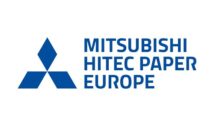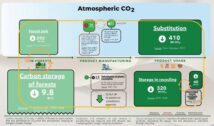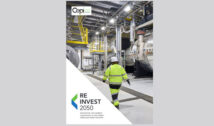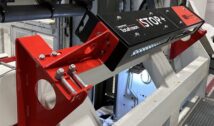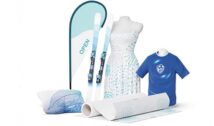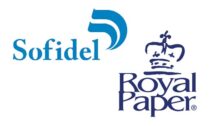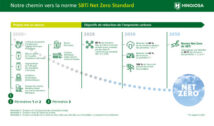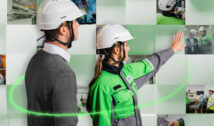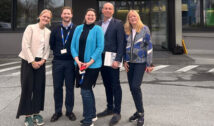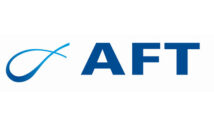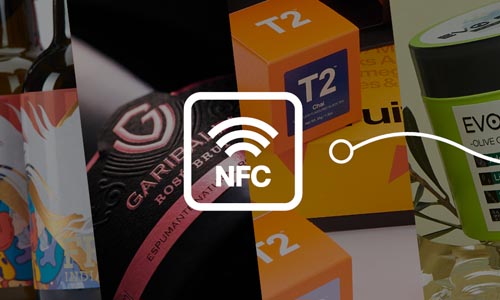
Beverage, healthcare & wellness and CPG: 85% of brands will increase investment in NFC and connected packaging over the next 12 months, also to achieve sustainability goals
SharpEnd, in collaboration with Fedrigoni, presents its new Connected Experience Report, a survey conducted among c-suite executives of more than 1,000 global brands across the beverage, healthcare & wellness and CPG sectors in the US and the UK, which analyses why and how brands are engaging their consumers through connected experiences.
- 96% of the brands in the survey consider connected packaging to be an important component in their marketing strategy and 92% say that first party data, i.e. data collected through these technologies directly by the brand, is a key strategic factor.
- 85% of the brands are willing to pay more to integrate Near Field Communication (NFC) into their products and again 85% of them will increase their investments in connected products over the next 12 months.
- 93% will use connected packaging solutions to support their sustainability programmes over the next two years, as there is a strong belief (85%) that connected packaging can help achieve ESG goals.
- Alcoholic beverages (84%), CPG (67%) and healthcare (58%) are the sectors with the highest willingness to experiment with new connected packaging, mainly in the UK. On average, 70% of the survey respondents say they use NFC technology for their products or marketing strategies.
- The sector planning the most investments within one year (88%) and most willing to pay for NFC solutions (90%) is the alcoholic beverages sector, while the healthcare & wellness industry leads the way when it comes to using QR codes and NFC to offer product information to consumers (60%). On the other hand, regarding sustainability, it is consumer goods that show the strongest indicators: 89% of the survey respondents believe that connected packaging would help them achieve ESG goals and 94% say that connected experiences would be an ideal tool to provide more comprehensive information about their sustainable initiatives.
SharpEnd is a global solutions company focused on helping brands and their suppliers connect each stage of the customer journey. In January 2024, SharpEnd entered into an important partnership with Fedrigoni, one of the world’s leading players in the production of high value-added speciality papers for luxury packaging and other creative applications, premium self-adhesive materials and RFID solutions, which will allow SharpEnd to develop new products and high-performance integrated solutions using NFC and RFID technologies.
“The results of this survey uncover a very promising trend, confirming our long term vision”, says Antonio Linardi, Fedrigoni’s RFID Business Director. “We are witnessing an exponential growth of connections between the physical and the digital worlds, inevitably resulting in the need for connected solutions – tailored to both companies and consumers. This interest is paving the way for significant innovations throughout the industry, and strengthens our position as strategic partner for brands interested in smart packaging and labels, based on NFC / RFID technologies”.
Cameron Worth, CEO of SharpEnd, says: ‘We’ve done a lot to build this industry over the last ten years and independent research has been fundamental in helping to educate brands about the possibilities. I’m happy to present the second volume of our independently conducted Connected Experience Report, and thankfully the data is on our side with brands clearly to scale.’
The demand for QR codes (95%) and NFC (93%) is also very high among consumers. At the moment, QR codes are the most recognised packaging technology integration, but preference for the use of NFC technologies is growing, which can be further boosted by better educating brands on its uses and advantages: 85% of the survey respondents believe their suppliers can insert NFC tags into products and packaging, while only 51% believe they are doing so, suggesting significant room for growth.
The emphasis on “value-added digital experiences” shown by consumers is therefore attracting brands that, in turn, want to increase their capabilities to collect first party data with the aim of gaining direct insight into how, where and why consumers interact with their products. This data has traditionally been challenging for brands to access as it is held by retailers who act as the intermediary between brands and consumers. Connected packaging technologies now enable brands to achieve more proximity to their consumers through virtual or mixed reality experiences, while independently generating their own first party data that they can then use for multiple purposes, from designing new products to better understanding their audience and optimising marketing budgets.
In terms of sustainability, although there is a very high desire to use connected packaging to achieve ESG goals, 72% of brands are concerned about seeing their initiatives labelled as “greenwashing”. This stresses a need for brands to adopt technology they trust, which allows them to share their product in a credible and trustworthy way. Including information about the product (59%) and any awards won (56%) are the most common ways for companies to promote their ESG initiatives through connected packaging technologies.
The report also delves into the future of packaging technologies, including legislative and policy changes that could have an impact on certain sectors: The brands surveyed believe that digital triggers on packaging could become mandatory for certain areas, such as sustainability credentials (50%), authentication (46%), ingredients, geographical provenance (44%) and legitimisation of product claims (42%).
Download the full version of the report at this link: https://www.sharpend.com/work/connected-experience-report-2


